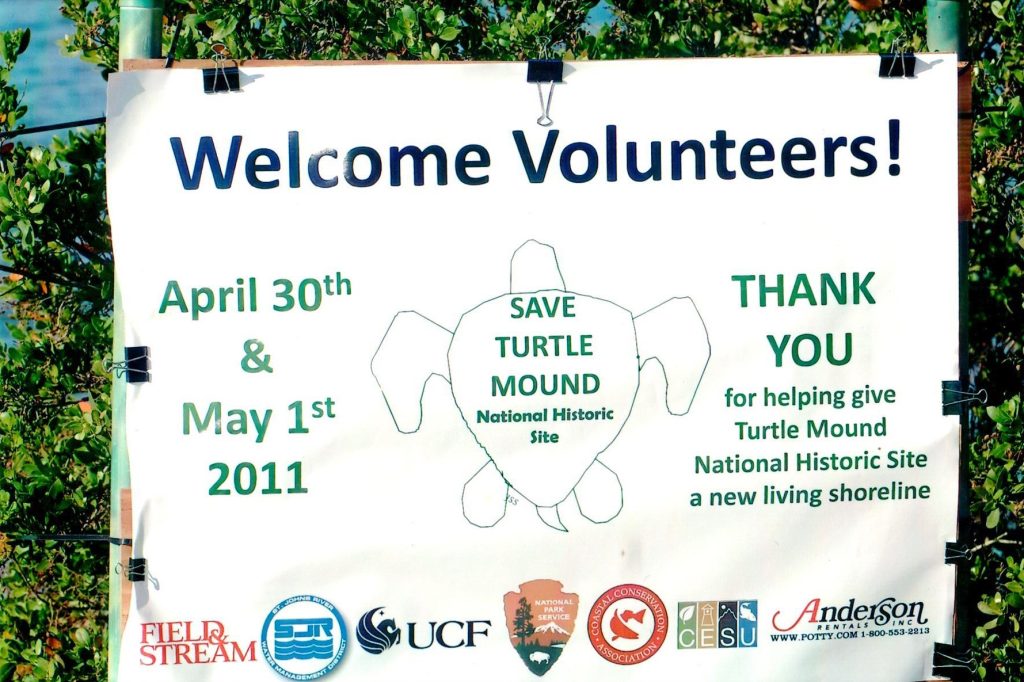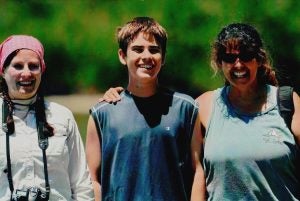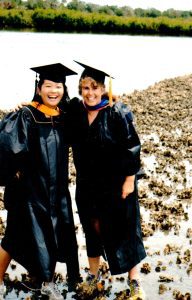CEELAB Marks 25 Years of Coastal Restoration

Twenty-five years of work by CEELAB (Coastal and Estuarine Ecology Lab) — celebrated in May 2023 — can be split into both tangible and intangible achievements.
For instance, over the span of 17 years, 66,000 volunteers have participated in one of the longest-running oyster reef restoration projects in the U.S. and restored close to four acres of damaged reefs. The research and restoration is the product of community and science partners investing more than $16 million into CEELAB across 200 grants.
Harder to measure but just as vital are lives changed. More than 300 undergraduate students received critical field and research presentation experience under the mentorship of CEELAB Director Pegasus Professor Linda Walters, Ph.D. More than 100,000 copies of 10 children’s storybooks are introducing future generations to the realities of environmental damage and repair.
Combined the impact is huge.
“I don’t see 25 years of work as a whole so much as a long series of special moments,” Walters said.
Walters was originally hired to teach marine biology and direct a small, unused laboratory located within the boundaries of Canaveral National Seashore (CANA) called Fellers House Field Station. That area would serve as the focus of CEELAB research and teaching. This area is included as part of the Indian River Lagoon National Estuarine Program. The name CEELAB originated from an alumna Rachel Odom Novella, who convinced Walters a name would help build community in the lab as well as on campus and beyond.
Research focus over the years includes marine invasive species to algal blooms to microplastics and tropicalization. Walters’ personal favorite is understanding the decline of intertidal oyster reefs. Oysters improve water quality and clarity, as well as provide food for wading birds and refuge for many economically important fishes and crab species.
CANA Resource Management Specialist John Stiner first alerted her to the issue. CEELAB started tackling the problem by mapping historic oyster coverage; this revealed a 40% loss of CANA’s intertidal oyster acreage since 1943. That statistic prompted the long-running oyster restoration project that’s since restored over 3.5 acres of reefs. Partnering with CEELAB are Marine Discovery Center in New Smyrna Beach, Florida Coastal Conservation Association, the Indian River Lagoon National Estuary Program, Florida Fish and Wildlife Conservation Commission and the National Park Service.

Assistant Research Scientist Melinda Donnelly, Ph.D., joined CEELAB as a master’s student with a love of mangroves in the early 2000s. She developed pilot shoreline stabilization efforts with mangroves, marsh grass and oyster-based breakwaters; to date this team has improved seven kilometers of shoreline over 13 years. Donnelly and Walters are also expanding into seagrass restoration this summer.
Training New Scientists
Teaching and training students remain paramount to Walters. She was named the 2023 Champion of Undergraduate Research by the UCF Office of Undergraduate Research. She has also received local, statewide, and national awards for engaging her students in science and the community.
Likewise, she models research success for her students in her classes. For example, her 20-person undergraduate marine biology class this spring semester collected original data for two projects presented as posters at two on-campus and two off-campus conferences during the semester. The presentations won awards at three of the conferences and are now under consideration for an international conference.
Educating the Next Generation
For the past 14 years Walters and Donnelly have worked with 20-25 educators to grow mangroves for coastal restoration. The classes keep the plants watered and warm for the first nine months when they are most vulnerable before finishing growing in the UCF nursery. This summer there are over 1100 mangrove seedlings.
CEELAB also educates children about endangered wading birds through a science fair and STEM showcase at Nemours Children’s Hospital. That inspired a series of widely distributed 10 children’s books focused on conservation and restoration. Walters witnessed the impact firsthand when a son’s friend dressed up for Halloween as the Ozzie the Osprey character.
The Legacy
Walters has no immediate plans to retire, but she already has a legacy in mind. For her, success is measured in both lives changed and a lagoon where all organisms thrive.

“Each student will have research and outreach experience that will help them with their own careers, and at the same time, will have helped understand and improve the Indian River Lagoon. That makes me proud.”
